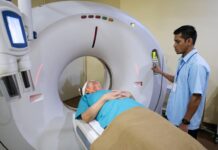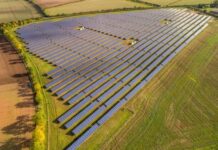New research will model the risks and impact of using solar radiation modification (SRM) to build understanding of the radical process and address evidence gaps.
The UK government is committed to delivering net zero and tackling the underlying causes of climate change.
However, as climate impacts increase globally, there is increased attention on radical intervention measures to control temperatures, including SRM, a process in which some radiation from the Sun is reflected back into space.
There is currently insufficient knowledge of the impact these interventions might have on the Earth’s system if they are ever deployed at scale, and how this would affect regional climate, humans and ecosystems.
There are also uncertainties around the effectiveness of some proposed SRM approaches.
The Natural Environment Research Council will invest £10 million in four research projects, launching in April, that aim to address these gaps in our understanding.
Using computer modelling research and historical data-driven research only, the five-year studies will investigate the impact of:
- Stratospheric aerosol intervention – the process of adding particles into the atmosphere that will reflect the Sun’s rays.
- Marine cloud brightening – this technique aims to increase the reflectivity of clouds over the ocean by spraying sea water to create more cloud condensation nuclei.
- How the environment might respond to SRM by comparing to real world natural analogues such as volcanic eruptions and changes in shipping emissions.
- The cooling potential of four less well-known SRM approaches – three focused on solar or terrestrial radiation and one examining the use of tiny, rod-like nanoparticles (cellulose nanocrystals) derived from natural cellulose sources to enhance the effectiveness of stratospheric aerosol intervention.
The programme aligns with the UK Government’s position on SRM, which is that the UK is not deploying SRM and has no plans to do so. The UK continues to invest in modelling studies to better understand the impacts of SRM deployment.
The research aims to deliver independent risk-risk analyses to inform policymakers on the potential environmental impacts of SRM.
NERC, with support from Sciencewise, is also commissioning a public dialogue to engage a diverse group and understand what public views and considerations are on SRM.
Professor Louise Heathwaite, Executive Chair of the Natural Environment Research Council, said: “NERC invests in a wide range of research to tackle, adapt to, and mitigate climate change. The UK’s priority is to tackle the root cause of climate change by reducing emissions of greenhouse gases from human activities and adapting to those impacts that are unavoidable.
“However, with the increased interest internationally in solar radiation modification measures, there is a pressing need to consider the impact of SRM approaches to control Earth system temperature. These research projects will analyse these approaches in detail and address ethical and governance considerations.”







